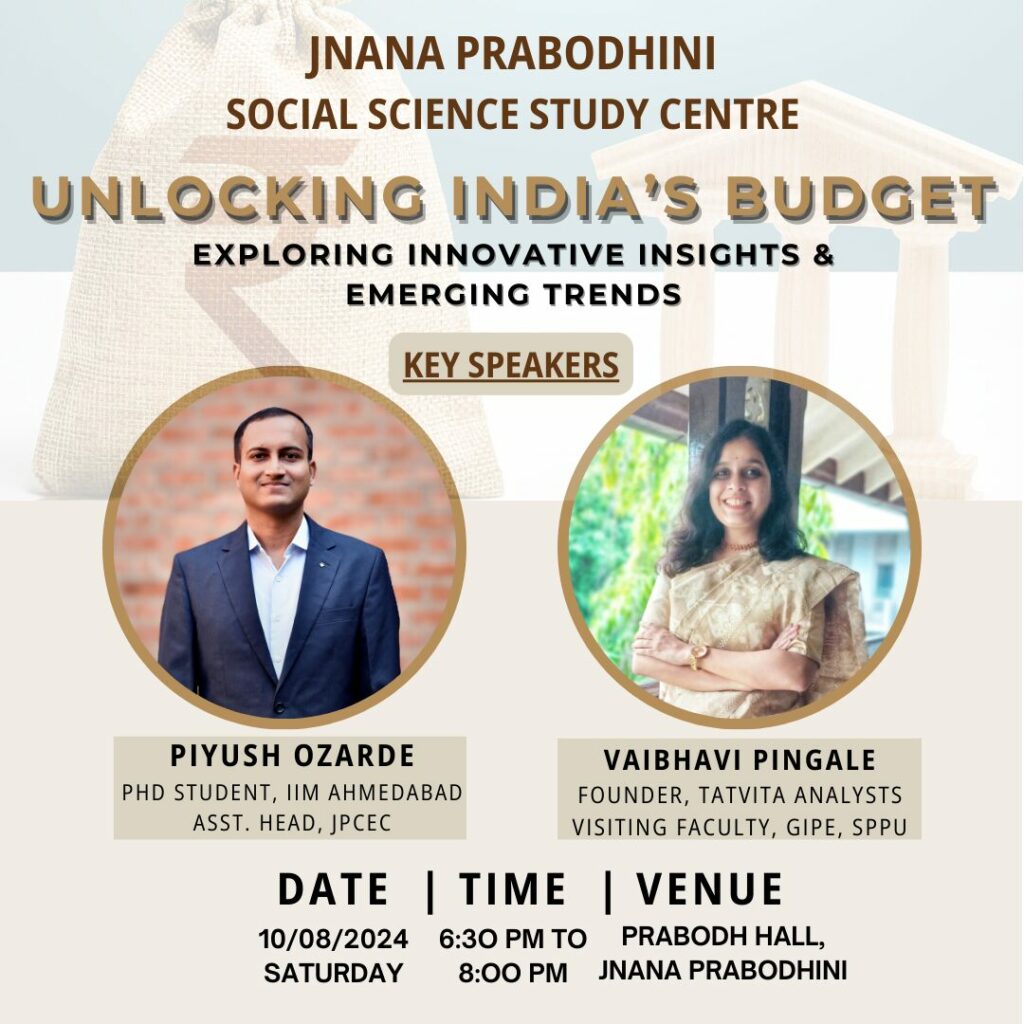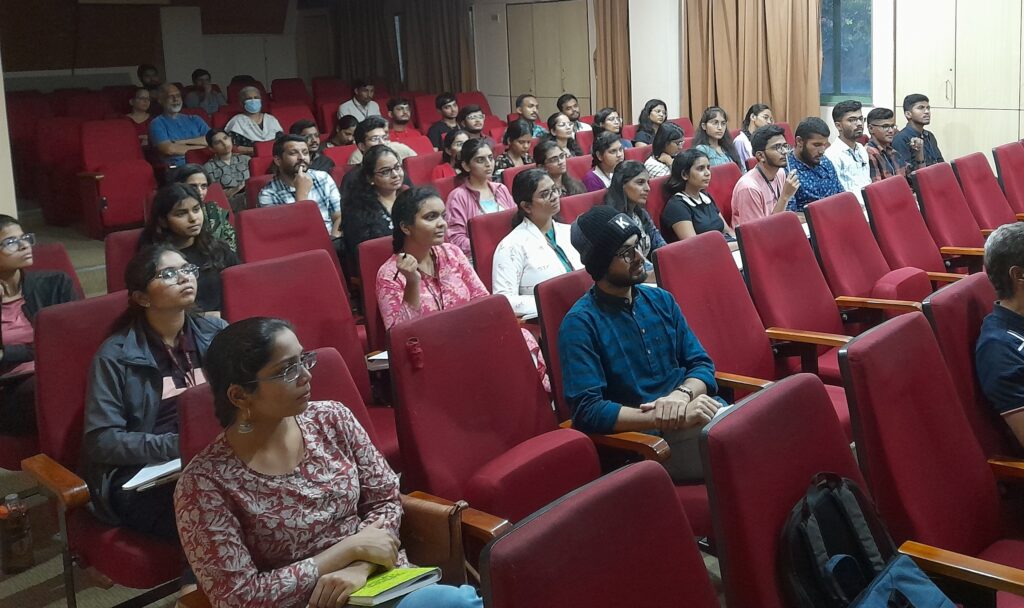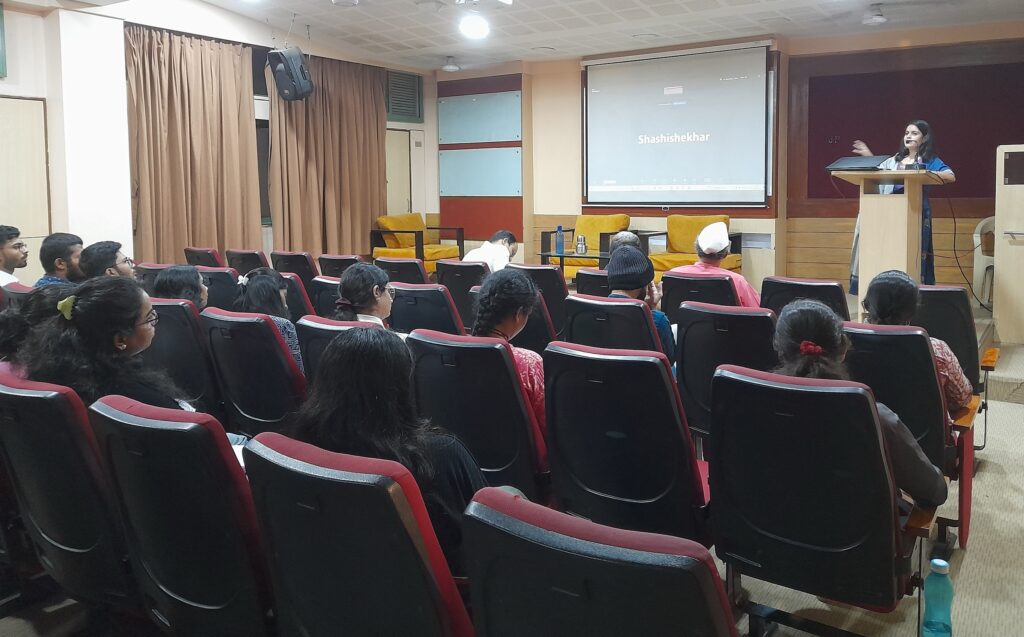On August 10th, 2024, the Social Science Study Centre at Jnana Prabodhini hosted an event titled “Unlocking India’s Budget: Exploring Innovative Insights & Emerging Trends.” The session aimed to decode the Union Budget and explored the socio-political motives behind various allocations.
Key Speakers:
1. Mr. Piyush Ozarde, a Doctoral Scholar at IIM Ahmedabad, and former Prime Minister’s Rural Development Fellow.
2. Ms. Vaibhavi Pingale, a Doctoral Scholar at the Gokhale Institute of Economics & Politics, and the Founder of Tatvita Analysts.
The event began with a brief overview of the Social Science Study Centre, by Mr. Amol Phalke, Centre Co-ordinator, dedicated to addressing national challenges through interdisciplinary learning, promoting integrative attitudes, and fostering societal growth. The Centre’s work focuses on areas like value-based economics, the philosophy of national integration, and applying technology to solve social problems.
Mr. Piyush Ozarde commenced his presentation by laying the groundwork with basic economic concepts, which are essential for interpreting the budget. His presentation included screenshots of official budget documents and explained how macroeconomic trends, such as GDP growth, nominal & real growth rates and fiscal deficits, influence budgetary decisions. He emphasized that understanding the budget is crucial for all, as it reflects the government’s priorities and impacts every citizen’s life. Mr. Ozarde also stressed the need for following serious researchers and reading basic budget documents to gain a deeper understanding beyond the budget speech and media criticisms. He also delved into the trends in development and welfare schemes and highlighted the government’s priorities.
Ms. Vaibhavi Pingale provided a nuanced analysis of the budget by connecting it with geopolitical events and the socio-political environment. She explained why the Annual Financial Statement is commonly referred to as the budget and discussed the growing government investments in sectors such as semiconductors. She elaborated on the Direct Benefit Transfer (DBT) system, explaining how it has significantly reduced government inefficiency by ensuring that subsidies reach the intended beneficiaries. Ms. Pingale also touched upon the varied interests of media, industrialists, politicians, and bureaucrats in policy-making, and how these influence budgetary allocations.
Moreover, she highlighted the importance of cooperative federalism in India, where the central and state governments must work together to optimize resources and drive urban growth. Her insights into resource optimization were particularly relevant, given the challenges of urbanization and the need for sustainable development.
Through real-world examples, such as Maharashtra’s successful attraction of the Toyota manufacturing plant, she illustrated the significance of the consistency in state’s commerce & investment policies. Her talk further delved into the land acquisition bill, critical minerals exploration & exploitation, labour laws, and entrepreneurship capital.
The event concluded with a lively Q&A session, where participants engaged with the speakers, seeking further clarity on the topics discussed. The seminar successfully provided attendees with a more nuanced understanding of the Union Budget, emphasizing its importance in shaping India’s socio-economic future.


